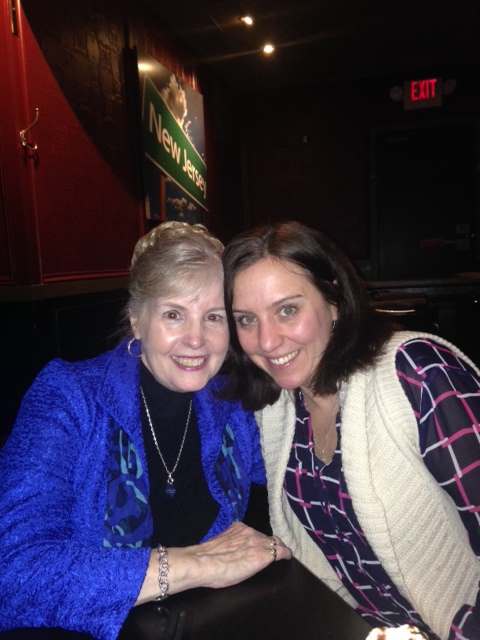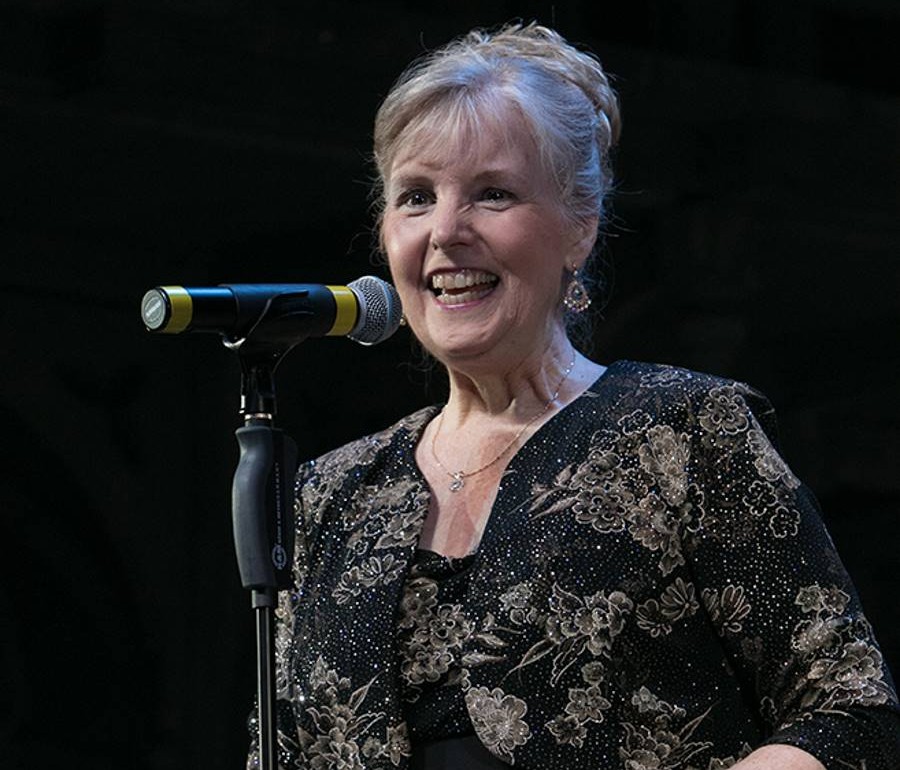I had the great privilege of knowing Mickey McNany from as far back as I can remember. When I was just four, my parents enrolled me in a theater class Mickey had created out of our local church. When Mickey founded the Paper Mill Playhouse Theatre School [in 1989], I followed her there, taking classes week after week until I went to college.
Mickey was my touchstone. My first starring role was as the Crocodile in Peter Pan. I could still sing my solo by heart today. I remember the fright I had right before I came onstage and the comfort I felt seeing Mickey’s encouraging smile ensuring me that it would be all right. In a letter she recently sent me, she said, “You were my very first crocodile and my granddaughter was the last so that is a pretty cool journey.”
“A pretty cool journey.” Yes, my journey with Mickey over these decades was under the umbrella of learning theatre, but what I was really learning was how to give back through art and how to be a kind person in this sometimes unkind world. Mickey helped me build a foundation that taught me about embracing my quirks, my creativity, and most importantly my empathy. I learned that theatre wasn’t about becoming famous but about giving back to your community. Mickey taught how to use art to enhance lives, create connections, heal, and tap into that joy we all have inside. The magic that Mickey made came from a deep selflessness and an authentic love for each of her students.
She was constantly expanding the Paper Mill Theatre School, as enrollment grew and word caught on about her enthusiasm for every child who walked through the door. As someone who was in countless productions through the school, I found as much pleasure in playing the Lion in The Wizard of Oz as playing an ocean wave in The Little Mermaid. Each role was important because it was the collaboration that mattered, the willingness to jump in and play pretend.

I was grateful to be selected for Mickey’s first touring company. Taking our shows on the road was surprisingly easy because Mickey made each of our sets from old refrigerator boxes, paint, and lots of glitter. What she created out of a small budget and a gigantic imagination was spectacular.
On tour we would go to nursing homes, cancer hospitals, and local schools. Not only would we perform, but we’d interact and connect with the audience on a very real level. One of my favorite performances was our annual Christmas show at the Make A Wish Foundation. I was playing Mrs. Claus one year and handed out presents to children my own age who were fighting cancer.
Mickey had so much love for others and truly made each student feel like a deeply needed member of the community at large. She continued to expand the outreach for her 30-year tenure, always emphasizing inclusion and awareness.
At Mickey’s wake in the first week of the New Year, I was anticipating a hard-hitting brick to hit my chest. But what happened when I opened the doors to the funeral home was unexpected, but exactly right. I was greeted by a picture of her smiling face welcoming me in and assuring me that everything was going to be all right—just as she had done when I was a scared six year old stepping on stage in front of an audience for the first time. I stood in front of her picture for a moment and felt her essence and experienced a wave of love—the unconditional kind that only Mickey could have radiated even in her death.
The usher informed us that we should go to the left, where we found fishbowls filled with paintbrushes, and a note saying, “Make some art in honor of Mickey.” I took a brush in my hand and vowed silently to never stop doing my art. Mickey had seen a child who loved creating stories, always scribbling words down on scraps of paper. And when I reached high school, she asked me to write a second act to our production of The Velveteen Rabbit. It was the first play I wrote with the actual intention of it being heard. It was thrilling, and anxiety-producing, but through the whole journey Mickey was standing watching with a giant smile on her face.
I didn’t know at that time I would eventually become a professional playwright. But my calling happened naturally when I started using my gifts to heal, connect, and create change. I’ve been really blessed to continue a life in the theatre for 30 years with Mickey always as a guiding light. At times I can get wrapped up in the nature of the business—the rejection letters, the never-ending submissions—but then I remember what Mickey taught me: Simply to always keep the PLAY in the writing.
Just last month I sent her my first Off-Broadway play. She read every word and in an email wrote: “On my refrigerator I have a sign that says: ‘Wake up today thinking something wonderful is about to happen.’ Today Amy…you and this wonderful piece were my wonderful!”
The truth is that Mickey was our wonderful. The world is a little less bright without her. I know that her generosity of spirit will continue on through each and every one of her students, and trickle out to those who knew someone that knew her. It is easy in this business to get wrapped up in the drama behind the stage, but when we stop and notice all the magic in the every day, and live with love, we know that Mickey is shining her light on us.
Amy E. Witting is a playwright based in New York City.


